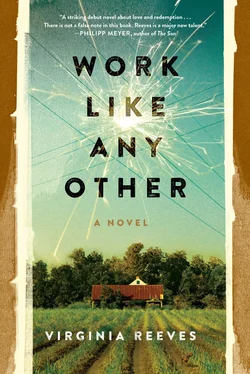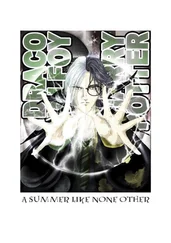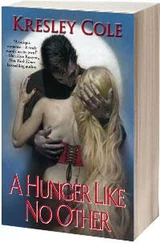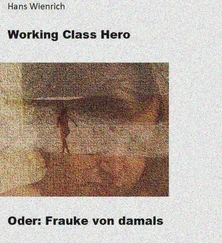I feel the doctor’s eyes on me. “We had to do some exploratory surgery to address the internal bleeding. And we had to open you up again when the infection got severe.”
Again?
“The blade that your assailant used wasn’t very sharp, you see. And wounds from dull instruments cause much more damage. This”—the doctor nods toward my stomach—“was more of a tear than a cut.” He seems pleased with his analysis. “It’s quite remarkable that you’ve recovered.”
“You’re very lucky,” Nurse Hannah adds, “to have such an accomplished doctor.”
I stare at the great mess my belly has become, at this mark I will surely carry forever.
“What about my leg?”
“Ah!” the doctor shouts. “The leg was nothing. It got infected, too, of course, but, hell — there’s only muscle and tendons in your thigh. Easy enough to stitch up.”
He pulls the sheets down, exposing my nakedness — the tube I haven’t felt yet that must drain my bladder — and points at a rough, thick line on my left leg. “The stitches just came out. That’ll heal nicely.”
It is a disgusting mark.
The doctor pulls the sheet back up. I wonder if he’s the same doctor who missed the ball in Jennings’s kidney.
“We’ll leave you up like this for a bit and get some real food into you. If it all holds, we’ll send you back to your cell day after tomorrow.” He turns to Hannah. “Easy foods.”
“I’ll bring some broth.”
It has been so long since I’ve eaten, even plain broth sounds delicious.
There are no voices in the room while she’s gone, the ticks and stutters of the building resounding loud and dogged, a great gray presence. Minutes pass, then my nurse returns with a steaming mug. I could weep at the sight of it, and still again at the warmth when I take it into my cupped hands.
Nurse Hannah smiles and leaves me to this joy.
I take a sip, and it is every bit as good as I want it to be. The second sip is, too, but halfway through the cup, pain starts in, red and barbed. It takes my breath, a great inward gust that must sound as though I’m drowning or suffocating. The broth wobbles in my hands, and try as I can to settle the mug, the hot liquid spills down my chest and wound. I am shouting and twisting, and I’ve pulled the needle from my arm in my panic.
“Nurse Hannah!” I scream with the last of my breath, the pain reaching its hands into my lungs. I can hear her running footsteps, and here she is — my girl. Hello, sweet thing . I see her, but everything is going gray round the edges, like the persistent sounds in the room. Her hair is gray and the skin of her face and hands; even her white uniform has dulled.
The doctor has returned, his voice mixing in. “To surgery. Get at the foot of the bed.”
There is movement and breeze, the swinging of doors.
“Prepping left arm, Doctor,” the nurse says. Something cool is at the inside of my elbow. “A poke,” she says, and I feel a new needle enter my arm, and that is all I’m left with. The voice, the cold, the needle, the gray.
The lawyer Marie hired to represent Wilson was able to trace him to the intake facility at Kilby, but from there, he disappeared.
“Leased, you can be sure,” the lawyer said, “but to where, we just don’t know, ma’am.”
“How can they have no record of a man they convicted?”
“It’s not uncommon. I’m sorry.”
Marie believed he truly was.
Roscoe’s letters continued to arrive, as they had since he’d first left with Sheriff Eddings that evening in the midst of supper. Marie could taste the meal. She could hear the easy conversation. She could feel the closeness of him — his hand on her leg, an intimacy she’d allowed him to regain.
At first, Marie refused to read the letters, focusing instead on Wilson’s trial. But after Wilson’s conviction, she went back to the small stack in the top left drawer of her dresser, finding herself hungry for a man’s words.
She knew Roscoe had been convicted, too.
Dear Marie, he wrote. Where are you?
Even that was too much — too entitled, too expectant. She was wherever she wanted to be.
Do you know what’s happened to Wilson?
Yes. She knew.
These questions only angered her, only forced Roscoe further away. Even the voice she heard through the writing sounded whiny and pitiful and indulgent. That voice didn’t care what had happened to Wilson. It cared only about its own discomfort.
But then Roscoe described the small cell that held him in the Montgomery jail, and for possibly the first time Marie imagined him there. She saw him, Roscoe T Martin, sitting on a thin cot, the beard he’d grown in his time there, the rough shagginess of his hair. She knew he didn’t belong in this foreign place, no matter how much he deserved the punishment.
In the next letter, he described his trial. He talked about the State lawyer who’d represented him. He did a good job, Roscoe wrote, and Marie knew instinctively that the man hadn’t. He couldn’t have. He wasn’t equipped to do a good job. I’ve been convicted of manslaughter and larceny. They’re giving me twenty years, Marie. I’ll be gone a long time. Please let me hear from you.
It had already been months since he’d written those words, half a year almost.
The rest of his letters came from Kilby Prison. The same intake process that had lost Wilson had held Roscoe tight. Her anger rose again. Why did Roscoe deserve to stay? She’d read the newspaper articles about the facility when it opened — a new penitentiary designed for true rehabilitation with its own livestock and farms, shirt factory and mill. We have a library. The librarian is an interesting fellow named Ryan Rash. I’m glad for the books, but there are less than in your father’s library, and Rash doesn’t stock any Faraday.
How dare he mention Faraday, the father of all this electrical madness. She stopped reading. There were more letters, but she’d wait. She couldn’t hear any more in one sitting.
“Are those from Pa?” Her son stood at the door, not little any longer.
“Yes.”
“What do they say?” He took a step into the room.
Their conversations about Roscoe had been quick and simple since Eddings’s last visit.
“Have you heard from Pa?”
“No, love.”
“Do you know if he can get visitors?”
“No, love.”
Now Gerald was here, a step inside her room, asking about his father’s letters.
“He’s in Kilby Prison, working in the dairy. He spends time in the library, too.”
“There’s a library?”
“Apparently.”
“That’s nice.” Gerald lingered. “Will we ever go see him?”
“No. We won’t.”
Gerald nodded. He’d suddenly become so old. He was helping with the farm, working with Wilson’s oldest son, Charlie, to keep things going.
“Moa wanted me to tell you that supper’s served. That’s why I came up.”
“Tell her I’ll be right down.”
“Yes, ma’am.”
She wanted him to come to her as he had as a boy, to bury his face in her skirts and cry or laugh or simply breathe out his warm little boy’s breath. She wanted to twirl the curls of his hair round her finger and whisper stories to him. She wanted to teach him his letters and watch, again, the delight of figuring out words and then sentences and then books. She wanted him to invite her to share a book together after supper, to go for a walk, to do anything.
Gerald was already gone, down the stairs, across the sitting room to the dining table, then into the kitchen, offering to help Moa and Jenny bring out the plates.
Читать дальше












